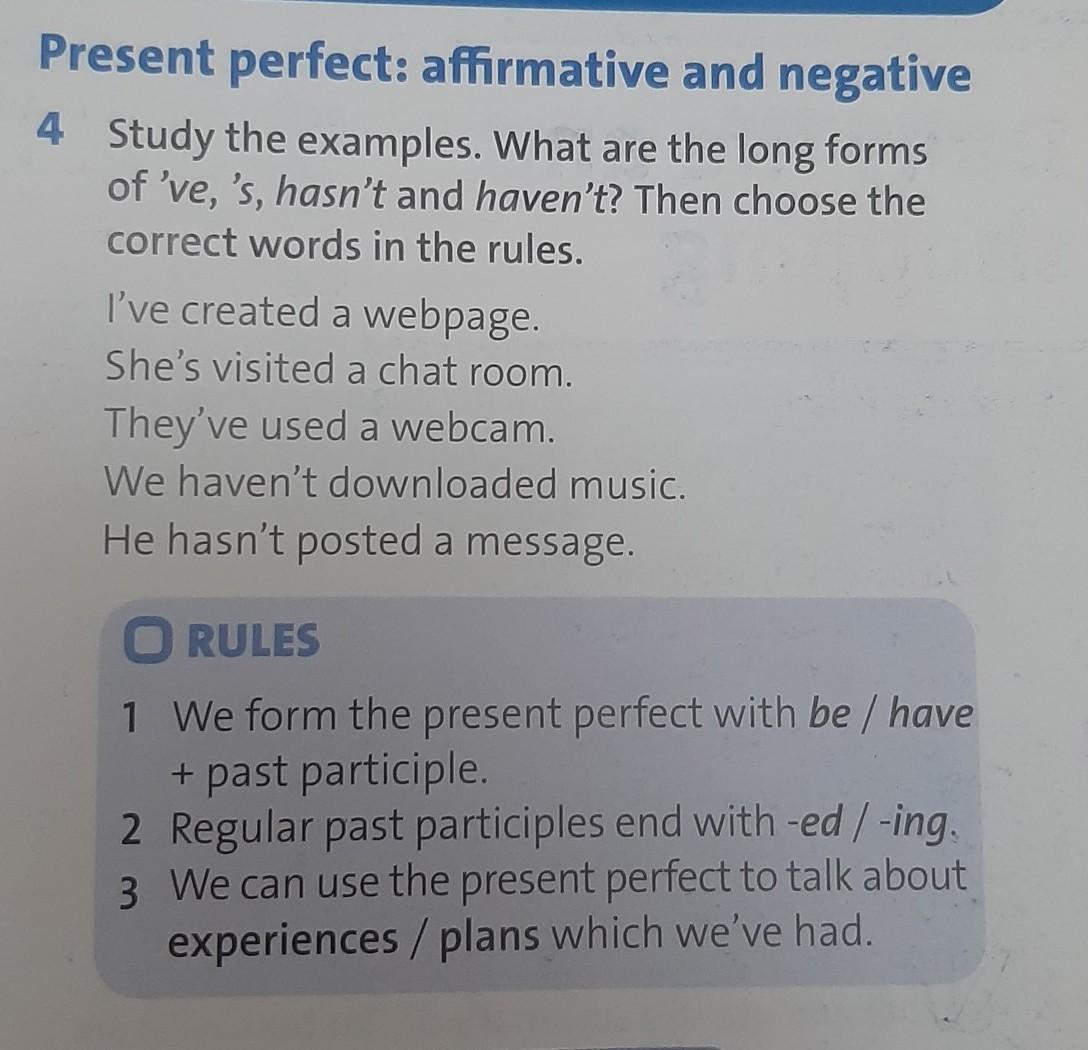Present perfect: affirmative and negative 4 Study the examples. What are the long forms of 've, 's, hasn't and haven't? Then choose the correct words in the rules. I've created a webpage. She's visited a chat room. They've used a webcam. We haven't downloaded music. He hasn't posted a message. O RULES 1 We form the present perfect with be / have + past participle. 2 Regular past participles end with -ed/-ing. 3 We can use the present perfect to talk about experiences / plans which we've had.
p 21 ex 4

Ответы
Ответы:
What are the long forms of 've, 's, hasn't and haven't?
- 've = have
- 's = has
- hasn't = has not
- haven't = have not
Rules:
- 1) have
- 2) -ed
- 3) experiences
Пояснения:
Вопрос 1. What are the long forms of 've, 's, hasn't and haven't?
- Перевод: Каковы полные формы 've, 's, hasn't, haven't?
В Present Perfect существуют как полные, так и краткие формы вспомогательного глагола have/has:
- • 've = have
- • 's = has
- • hasn't = has not
- • haven't = have not
*Краткая форма слева, полная — справа.
Вопрос 2. Блок "Rules"
1) We form the present perfect with be / have + past participle.
- Перевод: Мы формируем настоящее совершенное время (present perfect) с помощью be / have + причастие прошедшего времени (past participle).
Формула Present Perfect: have / has + V3 (past participle) => верный ответ have.
2) Regular past participle end with -ed / -ing.
- Перевод: причастие прошедшего времени, образованное от правильного глагола оканчивается на -ed / -ing.
Regular past participle — третья форма правильных глаголов, образуется с помощью добавления -ed (на -ing оканчивается герундий).
3) We can use the present perfect to talk about experiences / plans which we've had.
- Перевод: мы можем использовать настоящее совершенное время, чтобы поговорить об опыте / планах, которые у нас были.
Один из случаев использования Present Perfect — выражение опыта. Для выражения планов это время не используется, так как действие в Present Perfect всегда на момент речи уже завершено.
#SPJ1